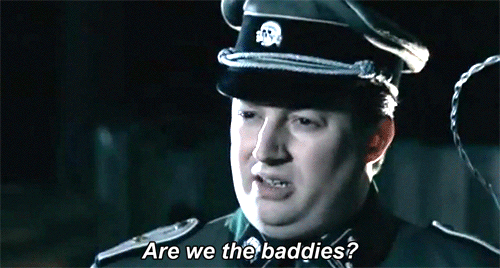Peoples, if you know something can we get some citations in here please? I know this is rich coming from someone who was too lazy to earlier ITT, but I am lazy...
It's pretty easy to google with a search of "life expectancy corrected for infant mortality".
It's been trending up, but one example using recent history is that almost all of the increase in U.S. lifespans since 1907 are almost a 1:1 ratio with major improvements in infant mortality.
In fact, according to my anthropologist wife human lifespan basically took a small swing downward with the shit from hunter/gatherer to agrarian lifestyles (believed to be a result of rapid decline in diet diversity but also likely tied to early territorial conflict, disease contraction due to grouping, etc.), then it all gets lost in a big haze of group X wanting to murder all of group Y and group A having this disease they've slowly developed some resistance to over generations then introducing it to group B who gets fucking decimated by it. Then we come out the other side of all that and people still more or less live the same length if nothing kills them before they simply get too old and break down.
Most biologists I've spoken with on the subject attribute how long you live more to genetics than to anything else. Not eating meat is adding a wrinkle your ancestors likely didn't introduce so who knows (so is just about everything else we do too), but chances are unless something external comes along to fuck you up you'll live roughly as long as the grandparent you caught the most dominant biological traits from.
You realize that these two points also justify, like... every single crime, right? "I admit that I murdered my family but, in my defense, life is suffering and eventually they would have died anyways."
If you want to take an illogically reductive bent to it, sure. That's where nihilists come from.
Or you an apply reasonable biological and social paradigms to get to a real answer. Everything is a hierarchy of wants and needs. Humans only differ in that we spend a lot of time thinking about what those are cognitively.
For example, I'm a firm believer in binary morality: there is no moral "good" (zero) only moral "bad" (one). A bad moral act is anything that infringes upon another person's freedom of choice without provocation.
So a dude sitting around his house smoking meth isn't doing anything morally wrong as long as he's single, has no children, and no one is dependent upon him in a meaningful fashion. When he decides to hop in his car all lit up he made a morally "bad" choice in that he's entering the public space unfit to operate the dangerous piece of machinery he chose to shamble his way into. When he runs a stoplight and mows down 10 kids getting off a school bus he didn't just instantly pass into the "bad" area, he was in the "bad" area since the first choice that put others at risk.
But then the quantification games begin with everything and so some bad is inevitable for all people. Kind of a corollary to the Christian concept of original sin, but not dumped on you as soon as you are born, but instead a constant negative stream you inflict on the world every day you're alive.
As for how that pertains to animals, well, they're my food. I'm their predator. Me eating them is no more morally reprehensible than a pack of wolves eating them. That's how a food chain works. If cows and pigs didn't want to be food they should hurry up and evolve cognitive thought. Then (maybe) I'd stop eating them.


